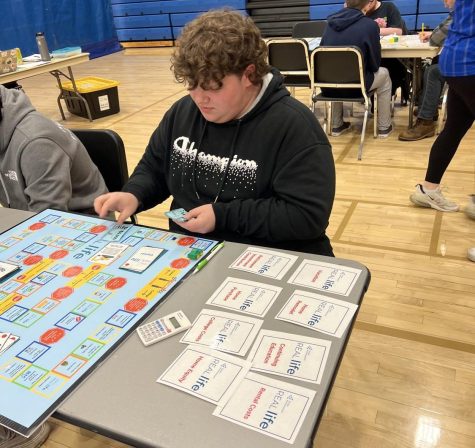Could Daylight Savings Be a Thing of the Past?
March 24, 2023
For as long as most of us can remember, 2 weeks of each year are set aside for complaining about the clocks either moving forwards or backwards and our loss of sleep because of it. With all of the complaining, wouldn’t someone have made an attempt to make the clocks the same year-round?
Actually, someone has. Senator Marco Rubio proposed the bill titled “The Sunshine Protection Act” in 2021 to end the yearly ritual of changing the clocks. This would make the current time state–daylight-savings–year-round.
Following the November 2022 election, standings on the time change hadn’t changed significantly; however, the new House Energy & Commerce committee leader, Rep. Cathy McMorris Rodgers, stated that the time has come for the people to stop changing their clocks.
While the U.S. Senate passed the bill unanimously in 2022, the bill still had to be approved by both President Joe Biden and the House. Former Speaker of the House, Nancy Pelosi, never brought the bill forward, and it stalled and expired.
Rubio reintroduced the legislation this month.
Numerous states–such as Tennessee, Kentucky, and Oregon–have already pushed for similar bills to be passed within their state government, and some have succeeded. Currently, 20 states have passed legislation for permanent standard time.
There’s a more important matter at hand than the political perspective: what effect do the time changes have on the general public?
Well, everyone is affected differently. We do know that the current clock changing ritual leaves some feeling groggy for the days following the switch.
“I feel like it affects me, the one hour difference affects you when you have a [busy] schedule,” said Senior Natalie Manfredi.
Manfredi is a dual-enrollment student who works a part-time job, which means that a healthy sleep schedule is a necessity for good performance. For people like her, lack of sleep could be detrimental to both grades and mental health.
According to UT Southwestern’s Medical Center, “-changes in daily [sleep] patterns can trigger stress in our brains and cause sleep deprivation, disorientation, and memory loss.”
This source has also found studies that indicate that poor sleep can cause other severe issues: obesity, heart attacks, cancer, and a higher risk of getting into a car accident.
The research behind the negative effects of the time change are endless, but have researchers found any silver linings to this topic?
With the time being set forward, some sources have found that heart attack rates have actually decreased, the opposite of what UT Southwestern had proposed. Since stress hormones are lowered when sleep patterns are better, this is what led this website to disagree with the medical center.
To some, the time change hasn’t made any dent in their daily routines. This is true for Senior Mackenzie Warner: “I think the time change is a placebo effect, and people just want something to blame for their poor sleep schedules.”
Whether you choose to believe the affirmative or negative side of this debate–or if you agree with Warner that it doesn’t make any difference–, the clocks will continue to change twice a year, unless the bill can successfully get through the legislative process in your lifetime.







